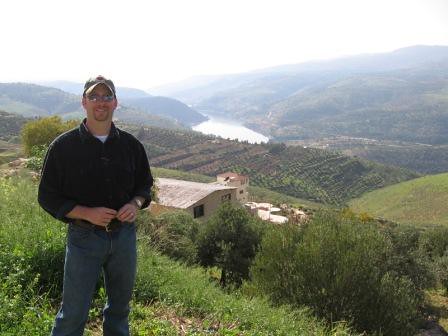I wrote the piece below for a proposal recently, and then I realized it wraps this past trip up fairly well.
On this trip, I had a recently retired (25 years) Navy SEAL with me. He is a representative for a Non-Governmental Organization (NGO). He represents a secular NGO made of believers who fund community projects that the church can use as platforms for ministry. We are praying the Lord would have us partner with his NGO on a few projects. After 25 years in the Navy and going to hotspots around the world with his NGO, he told me that southern Sudan was the most underdeveloped place he’d ever visited.
We (the whole team) also were of one mind that a big driver for the church in Sudan is the seemingly imminent war for succession of the South. The governments have signed a peace agreement that expires in 2010; however, many believe there will be fighting before then or when it expires. With that in mind, our goal is to plant as many churches as we can, with a supporting network of accountability and discipleship, as quickly as we can. The rough total from this past campaign:
- 230 Gospel Presentations
- 140 Professions of faith in Christ
- 130 of the 140 followed-up with for immediate discipleship
First, a brief preface to the strategy. In Luke chapter 14 Jesus warned us to calculate the cost of following Him. If we aren’t willing to die to even ourselves and carry the cross, (perhaps literally?) we cannot be His disciple. Sobering words that apply directly to Sudan. God has clearly called us to work there. He confirmed that call through scripture in August when He gave us Romans 15:20-21, “And thus I aspired to preach the gospel, not where Christ was already named, so that I would not build on another man’s foundation; but as it is written, ‘THEY WHO HAD NO NEWS OF HIM SHALL SEE, AND THEY WHO HAVE NOT HEARD SHALL UNDERSTAND.”
Per capita, only India and Indonesia have more unreached people groups than Sudan. It is an incredibly unreached place where, in the south, the vast majority of the people practice traditional, tribal beliefs and live in a stone-age environment. We are becoming more and more convinced that planting churches and making disciples in Sudan will be costly. Costly not only in the financial sense, but spiritually, mentally, physically and emotionally. We need partners and participants who will calculate the cost and help shoulder what could be a very difficult load—a commitment to bring light to this very dark place. This was, conversely, a huge blessing on this trip. We left Sudan with a group of very committed men to keep our shoulders to this grindstone.
Our Plan
There is a surreal feeling at times when you move about in Sudan. You see elderly men and many men under the age of 25, but few in between. An entire generation, virtually, has been wiped out because of war. This fact mixed with the lostness of the people has created a vacuum on leaders. Combine that with very few roads, (none of which are paved) no electricity beyond generators and solar panels, no running water anywhere, and voice communication limited to satellite phones and powerful radios.

This was a "good" road. Unexpected rains stopped this lorry cold.

You can begin to see that there many obstacles to church planting, particularly building a church network; however, God is faithful and when we are weak, He is strong.
Now that we’ve spent more time on the ground, we have a clearer strategy for church planting. We first must find faithful men (2 Timothy 2:2), then train and mentor them for church leadership. To accomplish this, we’ve started a pastor/leader training center in Kajo Keji, Sudan. We’re also partnering with other training centers we can trust to form and mold leaders. Once they’re ready, we’ll send these leaders out to not only plant new churches, but to duplicate themselves and reproduce leaders.

A dorm room on "campus."
All of this is indigenous: Sudanese training, mentoring, and reproducing Sudanese leaders. Our goal is to equip and send, but to not create a system of dependency or to have too heavy a hand in the process, beyond assuring biblical principles in the process. Why? Because when/if the war comes again, we want the church to be able to stand alone if we are cut off from entering the country.
 The classroom.
The classroom.
To create independent, self-sufficient pastors, we are looking at adding a vocational piece to the pastor training school. There we would bring in carpenters, mechanics, agriculture experts, and so forth to train the pastors in a simple skill they can support themselves and their families with.
So much, so much. What a task! The Lord can do all things.
And overarching all of this is the verse:
In his heart a man plans his course, but the Lord determines his steps.
May we be obedient.































